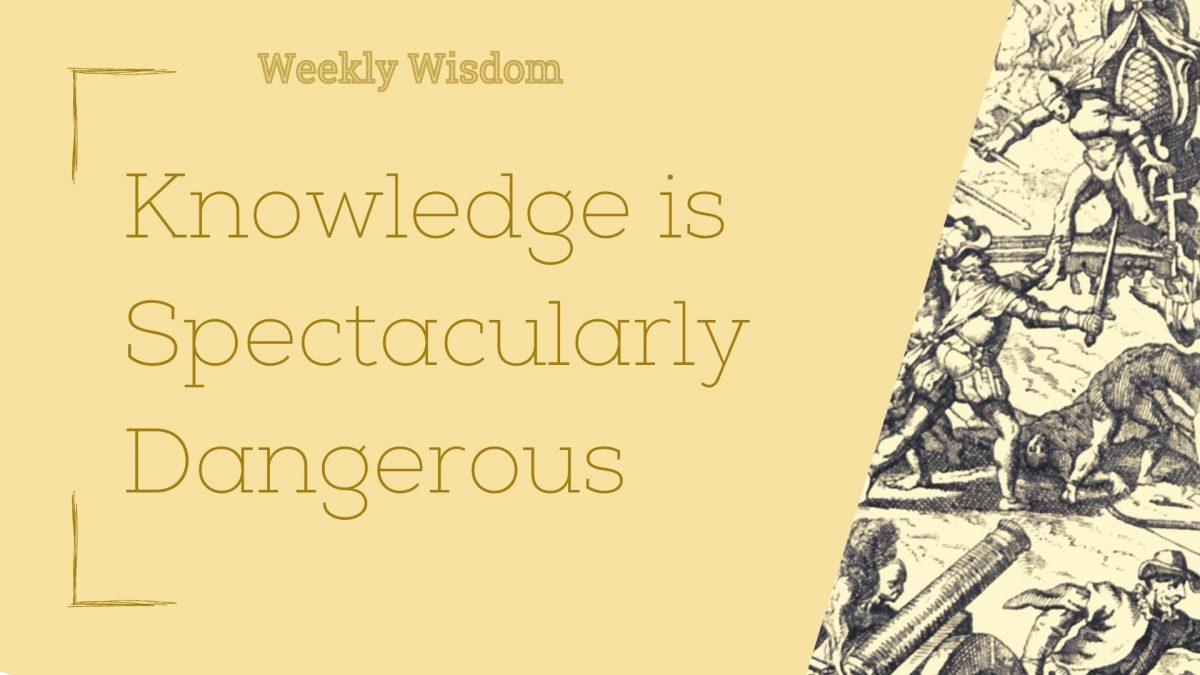Hello Subscribers, New and Old.
Welcome to Weekly Wisdom, your weekly dose of highlights, quotes and notes from my notebook. If you would like to receive this in your inbox, subscribe now.
This Week, I’d like to share:
- Dispatches from Isolation: Day 1—Tragedy, Comedy, & Thankfulness: This past December, I was infected by COVID. I documented part of my Isolation on the blog. I wrote these without any idea as to what they will end up being. You can read all of them here.
On to the main event.
This week’s quotes, notes & media:
Lay back, it’s all been done before
Continuing from a few weeks ago, here’s yet another excerpt on overcomplication. The tendency of smart people to not focus on simple solution is their undoing. The world is full of complicated solutions to simple problems.
Investing isn’t the only field where people avoid simplicity. Smart people love to over-complicate things so they can feel like they’re working hard. And if they fail, at least they can say to themselves: “I tried something though and it just didn’t work.” But the world rewards you for outcomes, not effort. When you insist on working hard, even when it’s not the most effective strategy, you miss obvious solutions that are right in front of your eyes.
Whenever you’re trying to solve a problem, ask yourself: “What am I missing because it feels too stupid?”
—David Perell, Monday Musings (The Stupid Test, School, Holland, Cities, Peter Thiel)
All life is Alien
I recently finished the fantastic alternative history First Contact sci-fi novel Axiom’s End. The Alien character Ampersand is only one of his race to communicate with humans. He does so through an envoy. When asked by US Secretary of Defense to create a device that translates the language of his people for all humans, he answers with:
‘One species is only comprehensible to another species as it understands itself. But with all species, there are attributes one possesses that the other does not share. Where attributes are not shared, inevitably both parties will try to shape the other into a form they can understand.’
…
‘This phenomenon is not unique to any one species. It is in the nature of all organisms, intelligent and non-intelligent alike, to understand other entities only through their own prism of existence. We understand each other only insofar as we understand ourselves.
—Lindsay Ellis, Axiom’s End
The author was trying to reveal the great truth behind culture clashes and colonialism. Throughout human history, we have measured the other on the basis of self. The foreign through the filter of local color. It is a myth to say that knowledge brings us together. Knowledge, at least incomplete knowledge, can be destructive. Most conquests and colonial adventures have been fueled by knowledge of the victimized culture, rather than ignorance. We see all that is not like us as inferior.
Some Reservations
IIn this column for Variety, Owen Gleiberman discusses the recent Anthony Bourdain documentary’s use of the synthesized voice and the controversy surrounding. The column goes in to details of the history of fakery in documentaries. However, this passage is about the grim future we all face.
I think what bothers people, justifiably, about the Bourdain film isn’t so much the “ethical lapse” as the sudden dramatic implication of how scarily reality can now be manipulated. We’re only at the dawn of the age of the deepfake. People can now be made to look like they’re doing things, or saying things, that they never did or said. The manipulation of Bourdain’s voice in “Roadrunner” seems to open a Pandora’s Box. What happens when unethical filmmakers employ such techniques?
—Owen Gleiberman, Is the Anthony Bourdain AI Voice in ‘Roadrunner’ an Ethical Lapse?
Overpriced Anxiety
Pretty self-explanatory. Source: @ArmaDoma on Twitter.

Thank you for joining me this week. If you know some who might enjoy this, please forward this email to them or share the link. See you next week.
Mudassir Chapra

